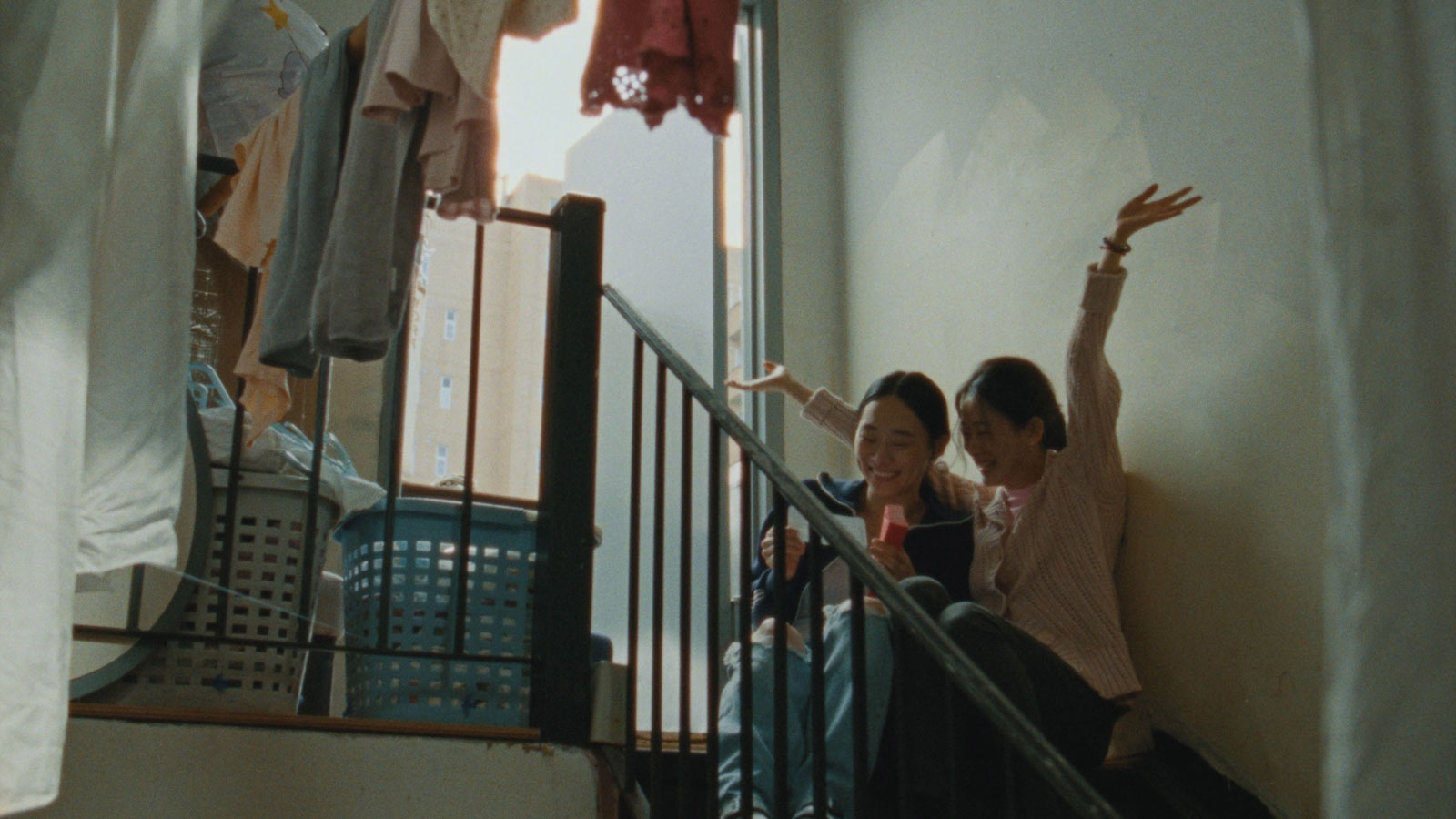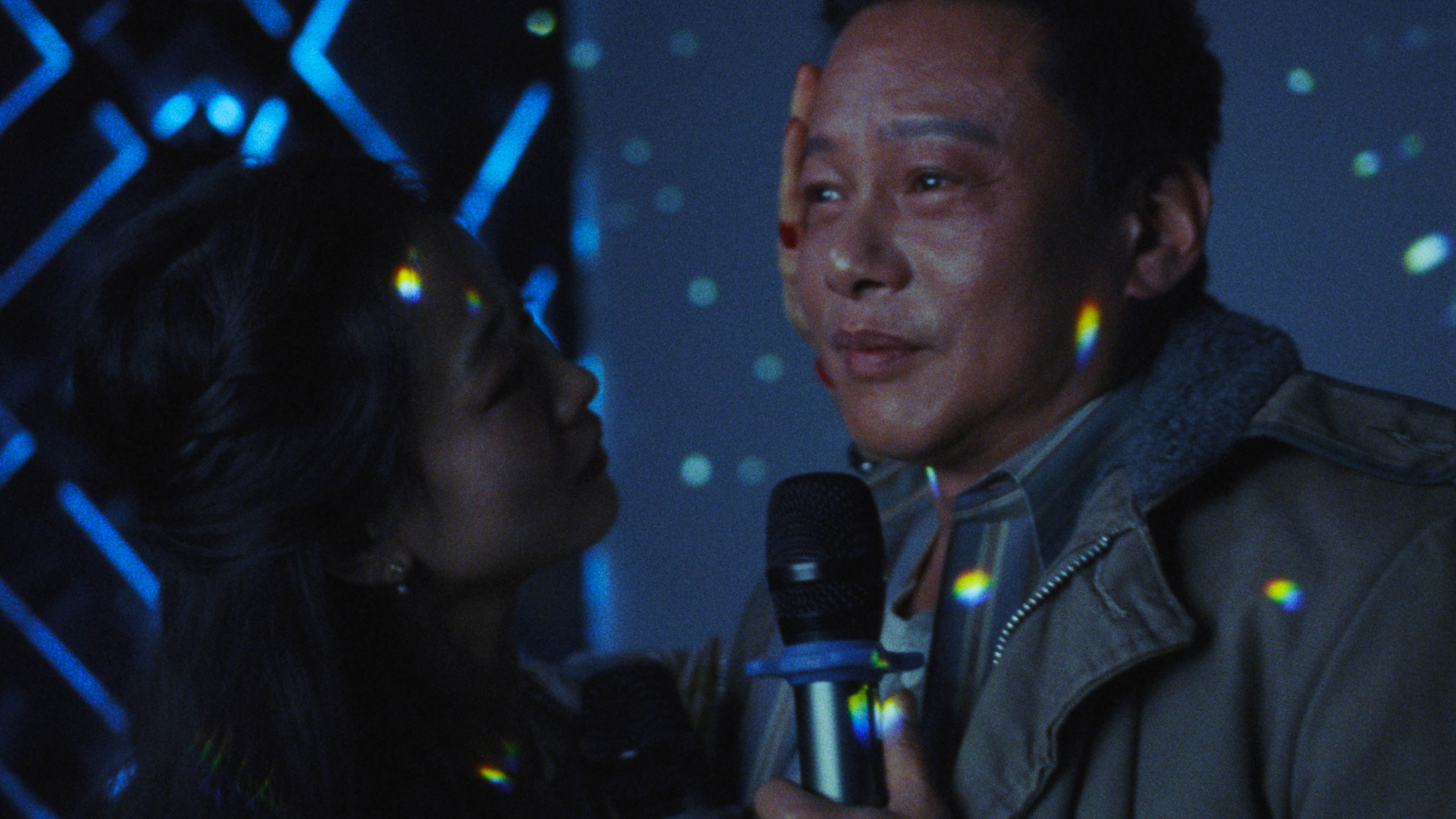Inner Worlds: Constance Tsang on Blue Sun Palace

Critics Campus 2024 participant Nicole Cadelina speaks to Constance Tsang about her feature debut, an intimate tale of sisterhood set in a Chinese massage parlour in New York.
Constance Tsang’s feature debut, Blue Sun Palace, carves an impassioned yet healing narrative of loss and connection in Flushing, New York. Set in a massage parlour, the film follows Amy (Ke-Xi Wu) and her newfound bond with Cheung (Lee Kang-sheng), a romantic partner of her close work colleague, Didi (Haipeng Xu); both Amy and Cheung experience a tragedy that cannot be overcome in solitude. An affecting study of love and loneliness, Tsang’s feature hums with a striking penchant for compassion, through sensual images caressed by lustrous coastal palettes.
With influences including Chantal Akerman and Ingmar Bergman, Tsang considers her film studies as having been formative in finding her cinema poetics. “Part of coming into your [own] style has a lot to do with trying out different modes of filmmaking,” she says. “When I was in film school, [I learnt] the basics of what cinema language can do, the extent of what it can see or show to verbalise emotion … I think a lot about classic Hollywood, things I grew up watching – that sort of language is utilised to prioritise information and plot. And I think [about] movement into finding inner worlds that make sense to me as a filmmaker, and what I’m trying to show.”
These “inner worlds” are integral to Tsang’s work as a Chinese-American filmmaker born to migrant parents. Blue Sun Palace enables her to explore the lives of migrant working-class women within the massage parlour through a bond that centres on sisterhood. As Tsang explains, this camaraderie builds on a “familiarity and warmth” that she intends to capture, the characters cultivating childlike joy via impromptu photoshoots with Chinese New Year decor and blindfolded guessing games over dinner.
“It’s company that almost becomes their family,” she elaborates. “A lot of these experiences are something I’ve seen with my mother and her siblings, and the women I went to. I realise it’s a place for women to talk about things that are extremely banal, like their day-to-day work life. But it’s also a space for them to talk about something deeper.”
Throughout the film, Amy searches for a particular kind of touch beyond the commodity status of physical bodies. It’s a desire that transcends a transactional connection. Tsang explains that we understand her relationship with touch near the beginning. “Right after they have dinner, Didi is massaging Amy. That form of touch is very much part of that sisterhood. What I found so interesting is that, in these spaces, these women are essentially there to heal. It has a way where it’s supposed to be a really healing moment between two people.”

Blue Sun Palace
Tsang adds that the massage parlour cannot be divorced from its transactional elements, either. Non-Chinese men enter the space to be serviced by women, their presence reorientating us within its New York location. Such reminders displace us, like these Chinese migrants themselves, from the characters’ motherland. These massages are neither erotic nor perverse, yet such a tactile service carries the potential of a breach in the social contract between server and client – a scenario that Amy later endures when a customer pressures her into a prohibited act.
“It’s under a capitalistic system,” Tsang comments. “But at the end of the day, we’re just two humans giving work to one another. What I wanted to do in talking about boundaries is to [show] how intimacy can be infiltrated, and who actually has control and power in that space. So all of that feels like a space that has multiple meanings.”
Through Cheung’s narrative, the film opens a new dimension of intimacy beyond transaction. Recognisable as Tsai Ming-liang’s cinematic muse, Lee offers a performance that forces us to study the internal impasses of his grieving character. “[Working with Lee] was an incredible experience,” Tsang recalls. “He is someone who is so intelligent and intuitive. The working relationship I had with him was rooted a lot in cooperation. During the rehearsal period, we’d go over each scene and say, ‘This isn’t quite right; what’s going on in this scene?’ so it always felt like a dialogue in conversation.”
Tsang remembers Lee feeling “tremendous freedom” after the shoot. “He took so much of this character and story to his heart and was able to give the performance an integration of who he was. This play and playfulness we had going into the shoot was something that was achieved because he was so diligent and thoughtful about this character.”
Numerous migrant narratives have emerged from New York, with films including Lingua Franca (Isabel Sandoval, 2019) and Tigertail (Alan Yang, 2020) receiving local and worldwide acclaim. Reflecting on her own upbringing, Tsang notes that her interests in migrant cinema emerge from specificity: “Those experiences and stories are ones that tether me back to something like Blue Sun, and [a] first-generation migrant story. So that’s something I’m particularly interested in, because I am a result of that story from my parents.” She also acknowledges, however, that the migratory experience contains a plurality of stories and perspectives. “We all have our opinions on our personal tastes, but I am happy to see that it’s an expanding category.”
As for upcoming projects, Tsang has previously mentioned a psychological thriller based on her mother; the work has since transformed into a drama, she says: “I think that it takes the same themes, but it feels truer to the kind of filmmaking I want to gravitate towards.”